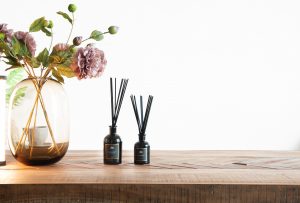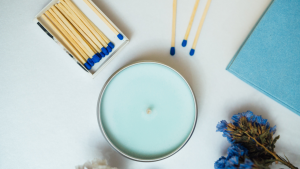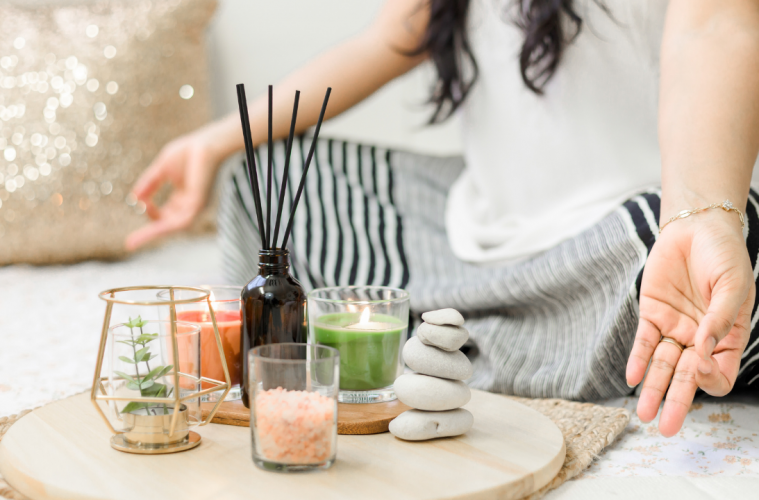Scent-scaping is the latest wellness trend you need for your home. It’s a simple trend that uses aromatics and fragrances to set the tone for any mood and can be achieved with flowers or diffusers.
Our homes are now working harder than ever for us. They’ve evolved into offices, gyms, classrooms, and private escapes from the chaos of the pandemic – all while still being a place to eat. sleep and unwind. As those old dividing lines dissolve and our routines blend into one, it’s little wonder that many of us are feeling a bit fatigued. If that sounds like you, it might be time to try fragrance zoning. Also known as scent-scaping. it’s the practice of using different smells to create separate areas for work, rest, and play.
‘Fragrance zoning is exactly as the term suggests, explains Andrew O’Keefe, director of Scent Australia Home.
Assuming you have a different scent in each zone, it can really work if executed properly.

Unsplash
How it works
The reason fragrance zoning is so effective is all down to our brain. ‘The nose is linked directly to a part of the brain that the other four senses are detached from, Andrew explains. The other senses are fed directly through the logical part of the brain, [while] smell leads to the amygdala and hippocampus, where we formulate our emotions and memory. It’s the reason the smell of crayons or cut grass can instantly transport us back to our childhoods, or why some perfumes can remind us of people close to our hearts. Scents can also be used to create associations. That’s where fragrance zoning can help transform the spaces in your home. “Zoning can curate differing environments, decided by you,” Andrew says.

Unsplash
Set the tone with smells for every mood
For chilling out: Woody fragrances such as sandalwood and cedar will help.
To de-stress: Select calming fragrances such as vanilla, lotus and iris.
To set a romantic mood: Spritz something inviting such as jasmine, amber or vanilla.
For a good night’s rest: Try something soothing such as lavender, sage or chamomile
For the home office: Choose invigorating scents such as citrus, rosemary or peppermint.
ALSO SEE:
A version of this article was originally published in the Garden&Home September 2022 printed magazine.
Feature image: Unsplash


